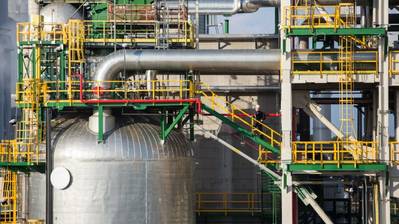BP to Sell Petrochemicals Business to Ineos for $5B
British oil major BP will sell its global petrochemicals business to Ineos for $5 billion, a transaction delivering BP's divestments target a year earlier than originally scheduled.
Brian Gilvary, BP’s chief financial officer, said: “With today’s announcement we have met our $15 billion target for agreed divestments a full year ahead of schedule, demonstrating the range and quality of options available to us.”
Ineos will pay BP a deposit of $400 million and will pay a further $3.6 billion on completion. An additional $1 billion will be deferred and paid in three separate installments of $100 million in March, April, and May 2021 with the remaining $700 million payable by the end of June 2021. Subject to regulatory and other approvals, the transaction is expected to complete by the end of 2020.
"Today’s agreement is another deliberate step in building a BP that can compete and succeed through the energy transition,# Bernard Looney, BP's chief executive officer said.
BP’s petrochemicals business is focused on two main businesses – aromatics and acetyls – In total, the businesses have interests in 14 manufacturing plants in Asia, Europe and the US and in 2019 produced 9.7 million tonnes of petrochemicals.
Bernard Looney, BP chief executive officer said: “This is another significant step as we steadily work to reinvent BP. These businesses are leaders in their sectors, with world-class technologies, plants and people. In recent years they have improved performance to produce highly competitive returns and now have the potential for growth and expansion into the circular economy."
“I am very grateful to our petrochemicals team for what they have achieved over the years and their commitment to BP. I recognise this decision will come as a surprise and we will do our best to minimize uncertainty. I am confident however that the businesses will thrive as part of Ineos, a global leader in petrochemicals."
“Strategically, the overlap with the rest of BP is limited and it would take considerable capital for us to grow these businesses. As we work to build a more focused, more integrated BP, we have other opportunities that are more aligned with our future direction. Today’s agreement is another deliberate step in building a BP that can compete and succeed through the energy transition.”
BP’s aromatics business is a global leader in the production of purified terephthalic acid (PTA), a key feedstock for the manufacture of polyester plastics, and its precursor paraxylene (PX). The business’s largest manufacturing plants are in China, the US and Belgium and it licenses its leading PTA production technology to producers around the world.
The acetyls business produces acetic acid and derivatives such as acetic anhydride, which have uses in a wide range of sectors. It has a diverse base with manufacturing plants in the US, the UK, China, Korea, Taiwan and Malaysia. The sale will also include related interests such as the chemical recycling technology BP Infinia and BP’s interest in acetylated wood developer Tricoya.
In total, the businesses included in the transaction currently employ over 1,700 staff worldwide. These staff are expected to transfer to Ineos on completion of the sale.
BP’s petrochemicals assets at Gelsenkirchen and Mulheim in Germany are not included in the sale.
In connection with this transaction, Ineos has an option to acquire from BP the research complex located at Naperville, Illinois, for an additional consideration or to enter into a lease or other arrangement for the same. Proceeds from the sale will be used by BP for general corporate purposes.
Woodmac: BP's move makes strategic sense
Commenting on the deal, Steve Jenkins, vice president of Wood Mackenzie’s petrochemicals team,said: “While most of the oil majors and NOCs are focusing on strengthening their petrochemical integration, BP has divested the last of its standalone petrochemical assets.
“This ends a slow exit from the sector that began in 2005. Most of BP's chemicals business was divested to INEOS at that time, along with two major integrated refinery/chemicals sites.
“Most of BP's chemicals business was divested to INEOS in 2005, along with two major integrated refinery/chemicals sites. Aside from the remaining deeply integrated Gelsenkirchen site, BP has now exited the chemicals business. This is a significant move, signalling its switch to focus on new energies.
“This move makes strategic sense. BP held onto these assets in 2005 when they were making strong profits. Now these chemicals businesses are struggling with over-capacity and BP is urgently raising cash.
“INEOS is, no doubt, relying upon capturing significant operational synergies as it integrates the two businesses. The deal includes a number of collocated assets and represents a good overall portfolio fit with very limited overlap.”











